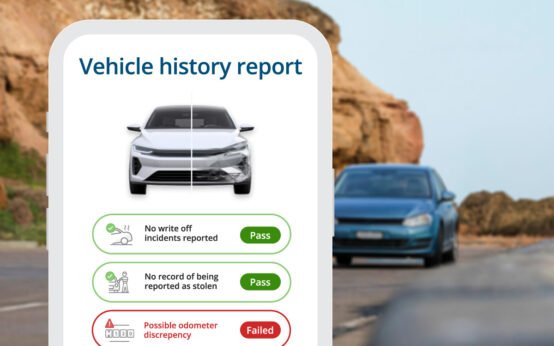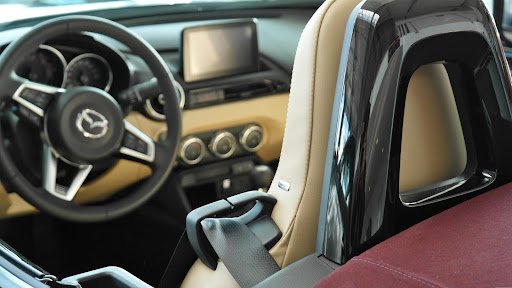Finding the most reliable car can often feel like searching for a needle in a haystack. With many models, brands, and features available, making the right choice may seem daunting.
Yet, understanding your needs and doing some research can simplify this process significantly. The right car can greatly improve your driving experience. It matters for work commutes, family road trips, and college use.
This guide will help you find the most reliable car for your lifestyle. It covers key features and considerations. Read on to learn more.
Table of Contents
Identifying Your Needs
Before searching for the most reliable car, take some time to reflect on your personal requirements. Start by asking yourself a few questions:
- What is your primary use for the vehicle?
- How many passengers do you typically need to accommodate?
- What type of terrain do you usually drive on?
- Do you prefer fuel efficiency over power?
Do you want certain tech features, like advanced safety systems or infotainment options? These factors will focus your research. They will help you narrow the many options available.
Researching Reliability Ratings
When considering the most reliable cars, reliability ratings are crucial. Sites like Consumer Reports, J.D. Power, and Edmunds rank based on owner feedback, repair rates, and satisfaction. They have detailed reports too.
Additionally, consider reviews on specific models from longtime owners. Search for forums or websites for specific brands or models.
Enthusiasts share their long-term experiences there. This qualitative data can often reveal insights that reliability ratings may not cover fully.
Key Features to Look For
Reliability is paramount. But, don’t overlook features that enhance your driving experience. Here are some key aspects to consider:
Fuel Efficiency
An efficient car is cost-effective over time. Look at models with high MPG ratings to save on fuel expenses.
Safety Features
Techs like blind-spot monitoring and automatic braking can improve your safety on the road.
Resale Value
Some cars depreciate faster than others. Brands like Toyota and Honda tend to hold their value better over time.
Comfort and Technology
Check if the car has the latest infotainment systems, comfy seats, and extra luxury features.
Exploring the Best Car Brands
Some best car brands consistently top reliability surveys. Toyota, Honda, Subaru, and Lexus are renowned for producing the most reliable cars. For example, the Toyota Corolla and Honda Accord frequently appear in lists of top vehicles for dependability. Both brands come with numerous awards and customer satisfaction ratings to back their acclaim.
Luxury brands like Mercedes-Benz, BMW, and Audi have reliable models. But, they may need more repairs than mainstream brands. Their offerings include advanced features that appeal to those desiring a premium experience.
Testing Drive and Comparing Models
Once you’ve narrowed your list to a few candidates, it’s crucial to schedule test drives. Visiting dealerships can provide firsthand experience with comfort, operation, and style. Before visiting, compile a list of questions or features you want to directly observe during the drive. While every car may sound great on paper, real-world tests can reveal differences that influence your decision.
When comparing models, take detailed notes on their driving performance, cabin noise, seating comfort, and visibility. For instance, if you are considering the Volkswagon Taos, explore how it stacks up against its competitors in the same class.
Finding the Right Price Point
Setting a budget is essential when choosing a car, as costs can significantly vary. Research the average prices of your shortlisted models in your area. Utilize pricing tools from online sites like Kelley Blue Book or Edmunds to evaluate cost-effectiveness.
Keep in mind that while the initial purchase price might be attractive, the total cost of ownership (including maintenance, insurance, and depreciation) should also be factored in. Sometimes, paying slightly more for a model with better reliability could save money in the long run.
Understanding Maintenance and Warranty
The maintenance costs associated with car ownership often come as an unexpected surprise. Prior to making a decision, research the recommended maintenance schedule and costs for the cars you are considering. Generally, brands like Toyota and Honda are known for their low-cost maintenance over time.
Additionally, look into warranty options available. Many manufacturers provide extensive warranties which can give you peace of mind. Honda, for instance, offers a three-year/36,000-mile limited warranty, with powertrain coverage lasting up to five years/60,000 miles.
Reading Customer Reviews and Expert Opinions
Take time to read customer reviews and expert opinions on various cars. Look for reviews that focus specifically on reliability and long-term ownership. The more real experiences you can gather, the better equipped you’ll be to pinpoint the most reliable car for your needs.
Sites such as Car and Driver and MotorTrend provide expert vehicle reviews that break down the pros and cons of every car model, helping ensure you make an informed choice. Customer reviews on websites can also offer a pulse on what everyday drivers think about their vehicles.
Final Considerations Before Purchase
Before finalizing your car purchase, double-check key factors one last time:
Ensure you have researched thoroughly and compared all your top models. Review warranty options, insurance costs, and maintenance estimates. Think about future needs; will your automobile still serve your lifestyle in five years?
Be prepared to negotiate; many dealers offer incentives that could help reduce costs. Taking these steps will relinquish any buyer’s remorse and give you the confidence that you’ve chosen the right vehicle for your circumstances.
Choose the Most Reliable Car for Your Needs
Picking the most reliable car is a task that requires careful thought and consideration. Understanding what you need and exploring different reliable brands will aid you in finding a vehicle that suits your lifestyle, including safety, features, and budget. From identifying your preferences to reading reviews from fellow owners, each step puts you one step closer to making a wise investment.
Take your time researching, testing, and evaluating; soon, you’ll be driving a reliable car that brings you satisfaction every single day.
For more helpful tips, check out the rest of our site today.


 Avoid Costly Mistakes: Why Every Used Car Buyer Needs a Vehicle History Report
Avoid Costly Mistakes: Why Every Used Car Buyer Needs a Vehicle History Report  5 Anime Series to Watch on Netflix This 2025
5 Anime Series to Watch on Netflix This 2025  Tips for Choosing the Right Hybrid SUV with 3rd Row for Your Lifestyle
Tips for Choosing the Right Hybrid SUV with 3rd Row for Your Lifestyle  The Pros and Cons of Choosing a Miata Automatic Transmission
The Pros and Cons of Choosing a Miata Automatic Transmission  4 Ways to Choose Luxury Affordable Cars Without Compromising Quality
4 Ways to Choose Luxury Affordable Cars Without Compromising Quality  How Green Is Your Is A Jaguar Xe Or An Apple Romero Building?
How Green Is Your Is A Jaguar Xe Or An Apple Romero Building?